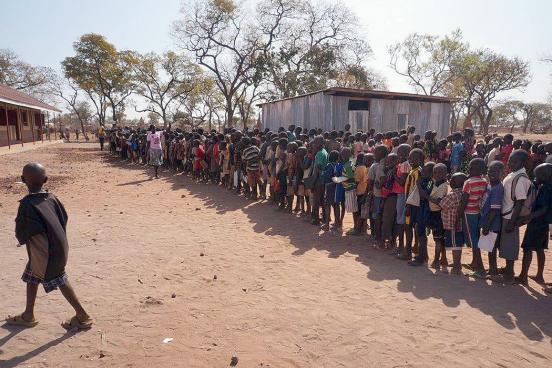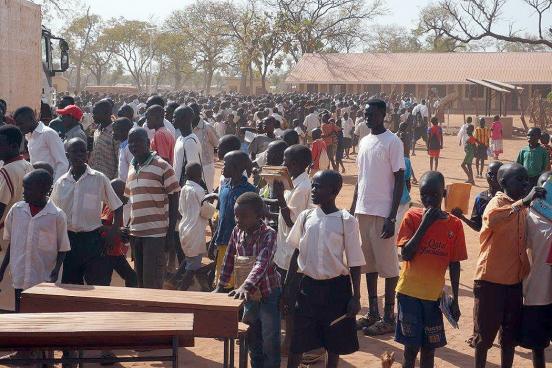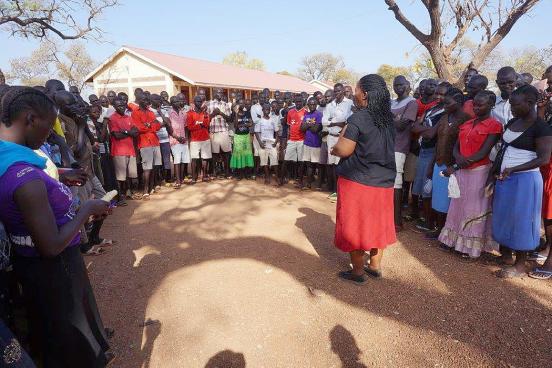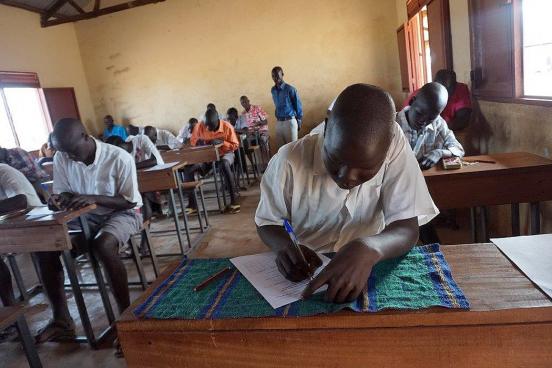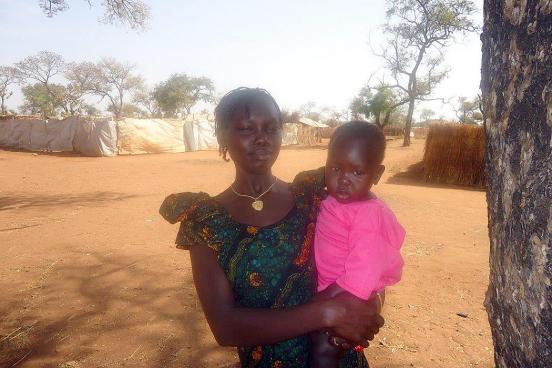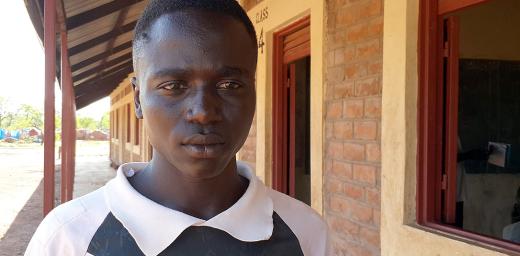Final exams for primary students in Ajoung Thok
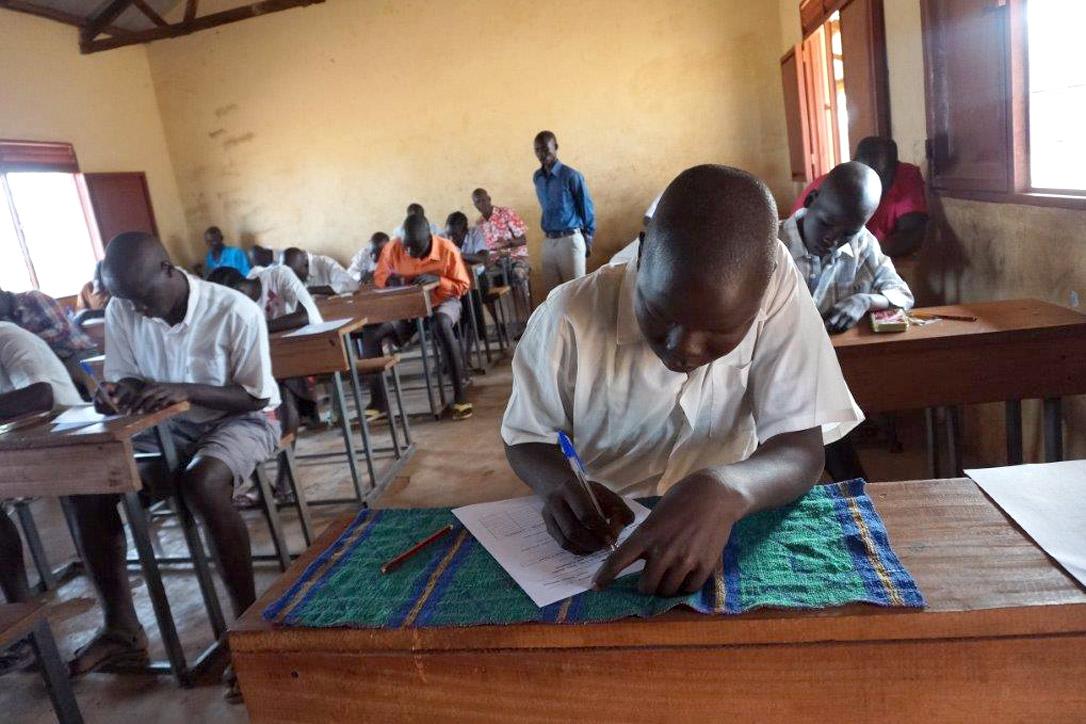
Primary school students sit their final examination at Napata school in Ajoung Thok refugee camp, South Sudan. Photo: LWF South Sudan
LWF Program Provides Education to Children in Conflict
(LWI) – By now they should know if they have studied hard enough: From 30 January to 2 February 2015, 202 students sat their primary level examination in Ajoung Thok refugee camp. Before, the students had been attending Napata and Merowe Primary schools in Ajoung Thok, where a total of 2,574 students were enrolled by the end of 2014.
“This will be the first group of learners to sit for primary level examination in Ajuong Thok,” says Annet Kiura, the Education Coordinator of The Lutheran World Federation (LWF). The high number of candidates is a result of the political crisis in December 2013, which resulted in the South Sudan National examinations being postponed, Ms Kiura explains. The examinations are managed by Unity State though LWF facilitated the transportation and execution of the process. After successful completion, the grade 8 students will be able to proceed to secondary level education.
LWF is the Implementing Partner for Education and Child Protection in Ajoung Thok refugee camp and has provided these services since March, 2013. LWF aims to improve education, protection, resilience and psycho social well-being of children in the camp through 3 primary schools, one secondary school, child friendly spaces and community based protection systems within the refugee camp.
A Safe Learning Environment
Another group of students has yet to sit their examination: The 1,145 teenage students enrolled in the Accelerated Learning Program, which started only in 2014. The Accelerated Learning Program funded by the ECHO Children of Peace grant is an education solution tailored for over-age learners whose school attendance was interrupted by conflict. There are many youth in the South Sudanese refugee camps which did not even have basic primary education when they had to leave their homes. When trying to make up for the lost time in a refugee camp, their level of knowledge forces them to attend primary school and share a classroom with six-year olds, who have a very different learning behavior. Many of them drop out of school entirely.
The ALP run by the LWF was designed for those students. They cover the curriculum for two primary years in one year’s time. In spring 2014, altogether 5,400 students from various refugee camps and host communities were enrolled in the program.
LWF is also running 6 Child Friendly Spaces (CFS) to protect more than 1,700 refugee children in Ajuong Thok. These children attend the CFS from Monday to Friday under the close watch of facilitators who ensure that the children are protected as they come to play. During the morning hours, children aged 3-6 years attend the CFS while in the afternoon, children aged 7 – 17 years of age attend after school hours.
New Plan for Increased Conflict Needed
Activities engaged in at the CFS vary and include singing, reading, drawing, recreational activities like hula loops, building blocks, football, netball, dominos and designing mats. The children are provided with an informal education and they learn to interact and exercise their right to play. Child friendly spaces provide a safe environment for all children at risk including Unaccompanied and separated children.
According to UN statistics, about 19,000 refugees are now living in Ajoung Thok, with 105 more arriving every day. Half of the refugees are children, increasing the pressure on the few educational facilities and child friendly spaces available.
The war in South Kordofan, Sudan has resumed with more intensity. Aerial bombings have destroyed basic facilities including schools and hospitals in South Kordofan, Sudan. “The result is an increased influx of refugees to Yida settlement and Ajuong Thok Refugee Camp in South Sudan,” says Anne Mwaura, the LWF Team Leader in Ajuong Thok.
The border disputes with the Northern neighbor South Sudan separated from in 2011 is but one challenge LWF staff face is providing education to refugee children. The situation is further aggravated by on-going conflict between the different factions within South Sudan and the delayed peace agreement expected from the current Addis Ababa talks. “At the close of 2014, the program planning figures for 2015 were far less than the current population of children in the refugee camps”, says LWF team leader Anne Mwaura. “We now need to develop a plan and mobilize resources to address the emerging needs of the high population in Ajuong Thok,” adds the team leader.


